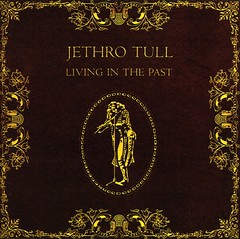 / Listening to today's episode of Spark about proto-versions of today's online and often "2.0" technology:
/ Listening to today's episode of Spark about proto-versions of today's online and often "2.0" technology:- Pirate radio (e.g. "Pump up the Volume
") as proto-blogging/file-sharing;
- Removal of toll booths (e.g. "Roads to Power: Britain Invents the Infrastructure State
") as proto-net-neutrality;
- Prince's song titles (e.g. "U Got The Look
") as proto-texting slang;
- Ham and CB radio (e.g. "Ham Radio's Technical Culture (Inside Technology)
" or "Smokey and the Bandit - Special Edition
") as proto-social networking tools; and
- Eighteenth century coffee house communication (e.g. "Flesh and Stone: The Sociology of Richard Sennett") as proto-status-updates and the explosion in Renaissance Europe of letter writing (e.g. "") as proto-information-overload.
The criticism of facebook and Twitter in the style of "I don't want to know about what you had for lunch and when you go to the bathroom," earns the response "So why do you talk about similar things over coffee with your friends?" Social communication in person is often (and has often been) trivial and inane.
The criticism of Wikipedia that "Anyone and their uncle can fiddle with an entry at will," is met with "Yes, that's the strength of the tool." That's why there's a rather extensive entry about my home town when there will probably never be one in a more traditional encyclopedia. We have often valued socially generated and grounded information over more objective sources. In studies about information seeking behaviour, we tend to start with our friends and family before going to the library or other potentially authoritative sources.
And I just read a thought-provoking article about how reading digitally may result in lower retention than print reading (I'm not convinced that it's an important point given such early days). My immediate response is, as the author agrees, the benefits outweigh these possible negatives. The reasons why print might allow greater retention than digital apply even more to say pre-printing-press material compared to the "sanitized" and "stream-lined" movable type versions. And, to make a huge generalization, you have to pay for progress with some loss.







